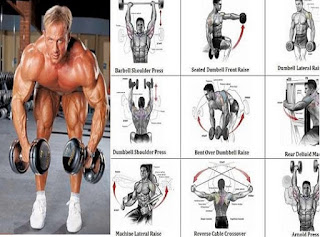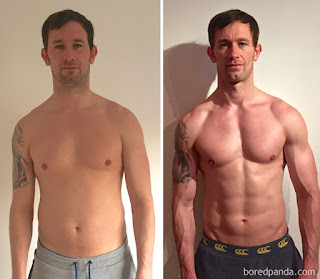The 7 Habits of Highly Effective Nutritional Programs
The success of any training program relies heavily on aspects that are almost entirely out of the control of coaches and trainers, who cannot supervise what athletes do when they leave the training environment. This is where certain behaviors and habits can sabotage everything the athlete has worked so hard to accomplish. Proper nutrition plays a huge role in how the body recovers and responds to training. Eating well provides energy for workouts and the raw materials for building strong bones, muscles, and connective tissue. It also provides the foundation for a healthy immune system, meaning less training time missed due to sickness and a more consistent training effect.
We live in an exciting age where we can access information about any subject with the touch of a button. However, not all the information presented is truthful, reliable, or accurate. Advice about nutrition put forth on television, the internet, in magazines and newspapers is often flawed. It can be overwhelming to decipher and look critically at the information that bombards us on a daily basis.
This informational guide has been created to give you easily understandable information that can be applied in everyday situations to give you the greatest chance of success. A great deal of time has been spent researching the latest nutritional information from the top organizations and individuals in the fields of strength and conditioning, nutrition, and health. However, this guide does not take the place of advice from a licensed nutritionist, dietitian, or doctor.
The goal is that as competitive athletes you become knowledgeable about nutrition. By being a smarter shopper and by preparing your meals the correct way, or by choosing the right foods in the dining hall or when you are out to eat, you can improve your health, energy levels, and performance. I hope that you are dedicated to developing all aspects of healthy behavior. If you follow the guidelines in the pages that follow and continue to develop a greater understanding of the foods that you eat, you will give yourself the best chance of fulfilling your goals and achieving your maximum potential.
1 -Eat every 2-3 hours, no matter what. You should eat between 5-8 meals per day.
2 -Eat complete (containing all the essential amino acids), lean protein with each meal.
3 -Eat fruits and/or vegetables with each food meal.
4 -Ensure that your carbohydrate intake comes from fruits and vegetables. Exception: workout and post-workout drinks and meals.
5 -Ensure that 25-35% of your energy intake comes from fat, with your fat intake split equally between saturates (e.g. animal fat), monounsaturates (e.g., olive oil), and polyunsaturates (e.g. flax oil, salmon oil).
6 -Drink only non-calorie containing beverages, the best choices being water and green tea.
7 -Eat mostly whole foods (except workout and post-workout drinks).
We live in an exciting age where we can access information about any subject with the touch of a button. However, not all the information presented is truthful, reliable, or accurate. Advice about nutrition put forth on television, the internet, in magazines and newspapers is often flawed. It can be overwhelming to decipher and look critically at the information that bombards us on a daily basis.
This informational guide has been created to give you easily understandable information that can be applied in everyday situations to give you the greatest chance of success. A great deal of time has been spent researching the latest nutritional information from the top organizations and individuals in the fields of strength and conditioning, nutrition, and health. However, this guide does not take the place of advice from a licensed nutritionist, dietitian, or doctor.
The goal is that as competitive athletes you become knowledgeable about nutrition. By being a smarter shopper and by preparing your meals the correct way, or by choosing the right foods in the dining hall or when you are out to eat, you can improve your health, energy levels, and performance. I hope that you are dedicated to developing all aspects of healthy behavior. If you follow the guidelines in the pages that follow and continue to develop a greater understanding of the foods that you eat, you will give yourself the best chance of fulfilling your goals and achieving your maximum potential.
1 -Eat every 2-3 hours, no matter what. You should eat between 5-8 meals per day.
2 -Eat complete (containing all the essential amino acids), lean protein with each meal.
3 -Eat fruits and/or vegetables with each food meal.
4 -Ensure that your carbohydrate intake comes from fruits and vegetables. Exception: workout and post-workout drinks and meals.
5 -Ensure that 25-35% of your energy intake comes from fat, with your fat intake split equally between saturates (e.g. animal fat), monounsaturates (e.g., olive oil), and polyunsaturates (e.g. flax oil, salmon oil).
6 -Drink only non-calorie containing beverages, the best choices being water and green tea.
7 -Eat mostly whole foods (except workout and post-workout drinks).




Commentaires
Enregistrer un commentaire